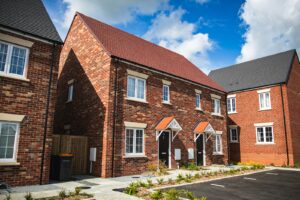How to Afford Your First Ever House

With house prices high across the UK, it can feel impossible to get on the property ladder. However, with careful planning and saving, owning your own home may not be as far out of reach as you think. Follow this advice to make your dream of homeownership a reality.
Set Your Budget
The first step is working out how much you can realistically afford to spend. Your monthly mortgage payments should not exceed 35% of your take-home pay. Speak to a mortgage advisor to get an idea of the loan amount you could qualify for based on your income and existing debts. They can run the numbers to tell you the maximum purchase price you can handle.
Remember to budget for other ownership costs like property taxes, insurance, maintenance and utilities.
Save a Deposit
Most lenders require a deposit of at least 5% of the property’s value. With the average UK house price around £285,000, you’ll need to save over £14,000. Open a dedicated savings account and set up automatic monthly deposits. Saving little and often is the key.
Take advantage of government schemes like Help to Buy: ISAs which add a 25% bonus to your savings. Ask relatives if they can contribute to your deposit as a gift. Even small amounts will help you reach your target faster.
The bigger deposit you have, the lower your interest rate. Stretching to save a 10-20% deposit will make your mortgage more affordable and increase your borrowing power.
Reduce Existing Debts
Lenders will assess your ability to take on more debt. Pay off loans and credit cards to maximise how much you can borrow for a mortgage. Reduce overdrafts and consider consolidating debts into a lower interest loan.
Check your credit history and ensure you are registered on the electoral roll. Good credit history demonstrates you manage debts responsibly and will qualify you for the best mortgage rates.
Consider All the Costs
On top of the purchase price, buying a home incurs various extra fees such as:
- Survey fees – £500+
- Conveyancing fees – £1000+
- Mortgage arrangement fees – £500-£1,000
- Land registry fee – £20-900+
- Stamp duty tax
Factor these into your budget. You’ll also need money saved for renovations or repairs that crop up. Be realistic about the costs so you are fully prepared.
Get Mortgage Pre-Approval
Before viewing houses, speak to a mortgage advisor like The Mortgage Company and get pre-approval on a mortgage amount. This shows sellers you are a serious buyer. Being able to answer questions like ‘how much mortgage can I borrow in Bristol’ also prevents disappointment from finding your dream home only to realise you can’t afford it.
With pre-approval for a Bristol mortgage secured, you can start seriously house hunting within your budget. Make sure to still get a homebuyer’s survey done on any property before exchanging contracts.
Consider All House Buying Options
There are various affordable routes onto the property ladder such as:
- Shared ownership – Buy a portion of a property (25-75%) and pay subsidised rent on the remainder. As your finances improve, you can increase your share.
- Help to Buy – Available on new build homes, the government will lend you up to 20% of the value so you only need a 5% deposit.
- Right to buy – If you live in a council house, you may qualify for a right to buy scheme with large discounts.
These options make buying cheaper than going it alone. Speak to a financial advisor to understand which you may be eligible for.
Buying your first home takes careful planning and saving. But with dedication and smart choices, you can make it happen.





